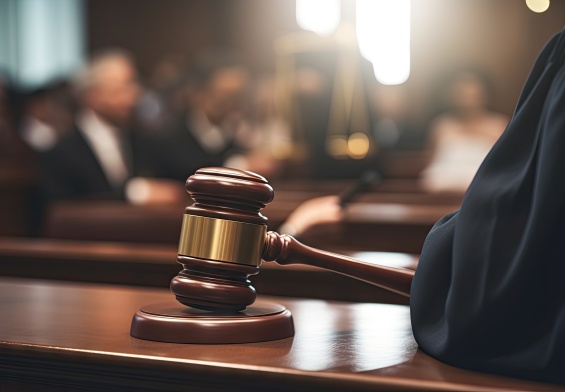Accidents can be terrifying, horrendous experiences to go through. It’s common for the mind to be racing and the body to still be in shock as you’re trying to defuse the situation and end the experience as quickly as possible. But leaning too hard into those efforts without thinking can become big problems down the line.
If the accident wasn’t your fault, you deserve full and fair compensation. A New Jersey personal injury attorney can help protect your rights, but only if your story stays accurate and consistent. This guide also covers common mistakes to avoid when hiring a New Jersey accident lawyer, so you don’t inadvertently weaken your case before it even starts.
This guide also covers common mistakes to avoid when hiring a New Jersey accident lawyer, and if you’re unsure what type of lawyer handles car accident lawsuits, it explains that too.
The goal is not to hide anything. It is to avoid the few phrases insurers and defense lawyers love to twist. When you know what not to say, you give your lawyer the cleanest path to fight for you.
Quick Answer: What Not to Say After an NJ Accident
After a crash, do not say anything that minimizes your injuries, guesses about fault, or locks in details you are unsure about. In New Jersey, early words can affect your PIP benefits and later arguments of fault. If you do not know, say so. Let your New Jersey personal injury attorney handle insurance communications.
Why What You Say After a New Jersey Accident Can Hurt Your Claim
New Jersey runs on a no-fault system for most car accident injuries. According to the New Jersey Department of Banking and Insurance Auto Insurance Consumer’s Guide (2023), Personal Injury Protection, or PIP, pays for your medical care first no matter who caused the crash. If you downplay your pain/injuries right off the bat, insurers can argue you weren’t really hurt.
New Jersey also uses comparative negligence. Under N.J.S.A. 2A:15-5.1 and related statutes, your share of fault reduces your compensation. Even when you did nothing wrong, careless wording can give the other side a way to claim you contributed.
Insurance companies investigate fast. According to the NJ DOBI Everything Automobile Insurance guide (2023), they compare statements, medical records, and police reports for consistency. When they find gaps, they use them to question injuries or lower offers.
A New Jersey personal injury attorney will spot risky language and help keep your case focused on facts. That is why it helps to know what not to say right after the accident and while learning how to talk to insurance after an NJ auto injury.
Don’t Say These 9 Things to a New Jersey Personal Injury Attorney
Don’t Say You’re “Fine” Before You’re Checked Out
People often say they are okay because adrenaline is high or they want to go home. But that’s the whole point of adrenaline, masking your injuries until the danger passes. If you are injured, it might not show up until later. Telling anyone you’re fine can immortalize it as part of the record right then.
According to the NJ DOBI Auto Insurance Consumer’s Guide (2023), PIP is meant to cover treatment quickly. Early comments that you are “fine” can be used to argue you did not need care or that your injury came later.
Say this instead:
- “I’m still being evaluated and following my doctor’s advice.”
Don’t Accept Blame Even if You’re Shaken Up
You might feel guilty even when you did nothing wrong. You might be unsure about parts of the crash. Fault is a legal decision based on evidence, not your first emotional reaction.
Because New Jersey comparative negligence reduces recovery by any fault percentage assigned to you, casual blame can cost you money later. Let your attorney review the facts before anyone labels responsibility.
Say this instead:
- “I want to stick to the facts and let the investigation decide fault.”
Don’t Guess Details You’re Not 100% Sure About
After a car crash, memories can be fuzzy. Stress changes how you perceive speed, distance, and timing. People fill in gaps without realizing it, then get stuck with an inaccurate version of events.
According to the NJ DOBI Everything Automobile Insurance guide (2023), insurers look for inconsistencies. Guessing creates openings for them to argue your story is unreliable.
Say this instead:
- “Here’s what I remember clearly, and here’s what I’m unsure about.”
Don’t Use Phrases That Sound Like You Weren’t Paying Attention
“I didn’t see them” or “I never noticed them” can sound like simple truth. But insurers may spin it into an argument that you were distracted or careless.
They can use even a small suggestion of inattention to assign partial fault under comparative negligence. Your lawyer needs context before those words get locked into a narrative.
Say this instead:
- “I saw them at the last moment and reacted as safely as I could.”
Don’t Explain Away Delays in Medical Care
Some people wait because pain seems mild at first. Others are worried about bills or think they can tough it out. Insurers often treat delays as proof you were not really injured.
PIP still applies, but timing affects credibility. If you waited, your attorney can explain why in a way that protects you. You do not need to justify it offhand.
That matters even more if you later discover a slower-developing condition, which is why the hardest injury to prove after a New Jersey accident is often one people dismiss at first.
Say this instead:
- “I did not realize how serious it was at first, but I’m getting care now.”
Don’t Overshare With Insurance Before Talking to Your Lawyer
Adjusters can sound friendly and concerned. But remember, their job is still to reduce what the company pays. Many people overshare, speculate, or agree with leading questions without meaning to.
The NJ DOBI Everything Automobile Insurance guide (2023) explains that claims investigations rely heavily on statements and records. If you already spoke to insurance, tell your attorney what you said. If you have not, let your lawyer guide the conversation first.
Say this instead:
- “I reported the basics. I want my attorney to handle details.”
Don’t Agree to Handle the Crash “Off the Record”
Some drivers suggest paying out of pocket or skipping insurance. That can feel easier in the moment, but it creates major risk for you later. It can delay care and make damages harder to prove.
New Jersey designed its PIP and liability coverage laws for this situation. Side deals often fall apart once real medical bills show up.
Say this instead:
- “We should exchange information and report it properly.”
Don’t Assume Social Media Can’t Be Used Against You
Even private posts can be shared, screenshotted, or subpoenaed. A photo of you at a family event or a casual joke about the crash can be taken out of context.
The DOBI guides stress that inconsistencies are damaging to claims. If anything about your posts conflicts with your injury story, insurers will highlight it.
Say this instead:
- “I’m staying off social media about the accident until my case is done.”
Don’t Put a Price on Your Case Too Early
Online estimates are not personal to your injury. Case value depends on diagnosis, treatment, long-term impact, and determinations of fault. Two accidents that look similar can lead to very different outcomes.
Your lawyer needs time and medical evidence to calculate damages. Setting a number too early can limit your expectations or lead to a rushed, low settlement.
Say this instead:
- “I want to know the value after my medical picture is clear.”
New Jersey Laws That Make Your Words Matter
These same communication rules apply outside car crashes too, like slip-and-falls or unsafe property cases, and this guide on how to sue a business in New Jersey breaks that process down.
How NJ No-Fault and PIP Affect What You Say
New Jersey is a no-fault state for medical coverage after most car accidents. According to the NJ DOBI Auto Insurance Consumer’s Guide (2023), PIP pays your medical bills first, regardless of who caused the crash. Depending on your policy, PIP may also cover lost wages and essential services.
That is why early comments matter. Insurers will question the extent of your injuries if your initial statements downplay your injuries. Your attorney uses your medical timeline to support both PIP benefits and your injury claim.
Comparative Negligence in NJ: How Fault Talk Reduces Recovery
New Jersey does not block recovery just because you might share a small part of fault. Under N.J.S.A. 2A:15-5.1, you can recover damages if you are not more than 50% responsible. Any award is reduced by your fault percentage.
This is what translates causal comments that sound like blame into formal arguments that reduce what you receive. Your lawyer’s job is to protect against that. Fault language matters in every NJ injury case, including motorcycle crashes, where motorcycle helmet laws and accident liability can affect how insurers argue responsibility.
UM/UIM and Verbal Threshold Policies (Why They Matter Here)
New Jersey policies often include UM/UIM coverage, which helps if the at-fault driver has no insurance or not enough insurance. Your lawyer may need your early statements to stay consistent so that UM/UIM claims do not get challenged.
Many drivers also have a verbal threshold policy, which can limit when you can sue for pain and suffering. If you say things like “I’m fine” or “it’s not serious,” insurers may argue you did not meet that threshold later.
Key Takeaways for Not-At-Fault Accident Victims
- Avoid minimizing injuries. Early words can reduce PIP support and credibility.
- Do not guess or accept blame. NJ comparative negligence can cut recovery.
- Stay consistent across statements, records, and treatment. Insurers look for gaps.
- Let a New Jersey personal injury attorney handle the adjusters. That protects your claim.
- If you are unsure what to say, pause. That is often the safest move after a crash.
You can also avoid other early slipups that insurers look for, like these common mistakes after a car accident that hurt your claim.
Protect Your NJ Injury Claim From Day One
After a New Jersey car accident, the wrong words can create doubt even when you did nothing wrong. The right approach is simple. Be honest, avoid guessing or apologizing for something you did not cause, and let your attorney frame the facts properly.
A New Jersey personal injury attorney is there to protect you, not judge you. If your injury came from a crash, you can learn more about what to expect here: https://ciecka.com/.
Resources
Justia Law – NJ Rev Stat § 2A:15-5.1 (2024)
Justia Law – NJ Rev Stat § 2A:15-5.2 (2024)
NJ Department of Banking and Insurance – Everything You Wanted to Know About Auto Insurance but Were Afraid to Ask (2023)
NJ Department of Banking and Insurance – New Jersey Auto Insurance Buyers’ Guide




